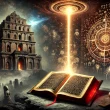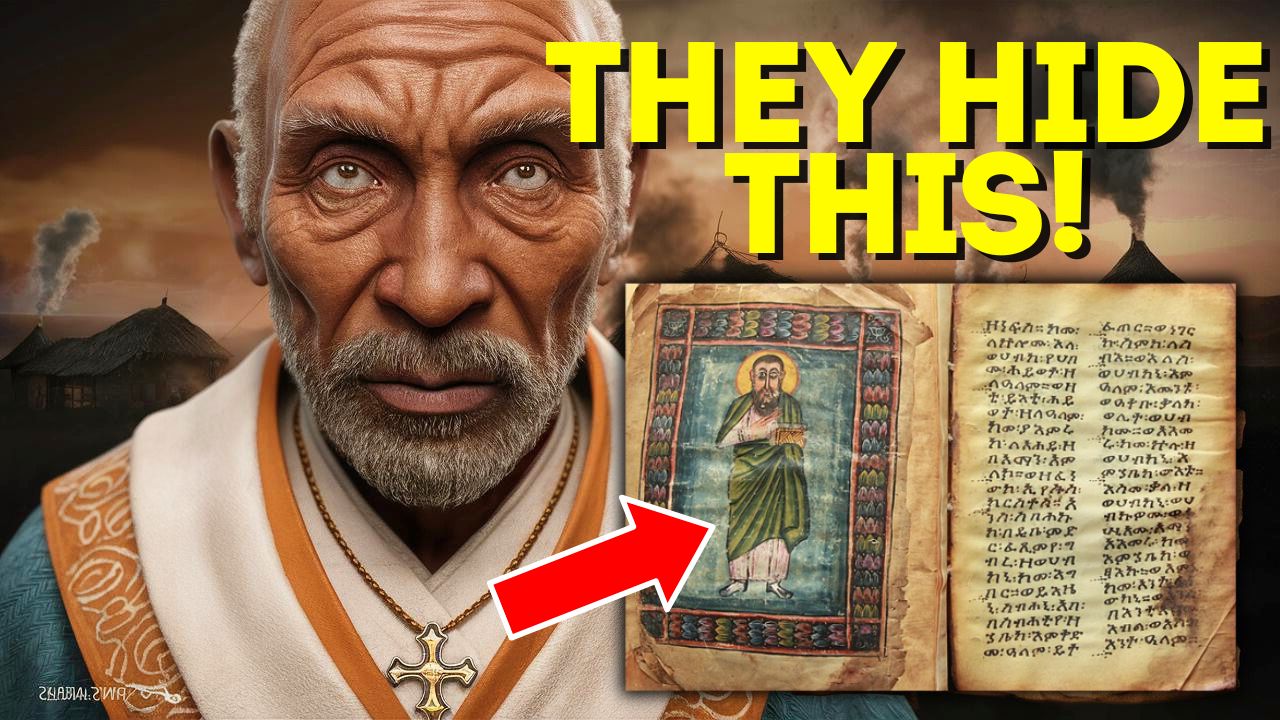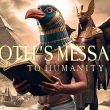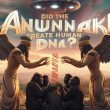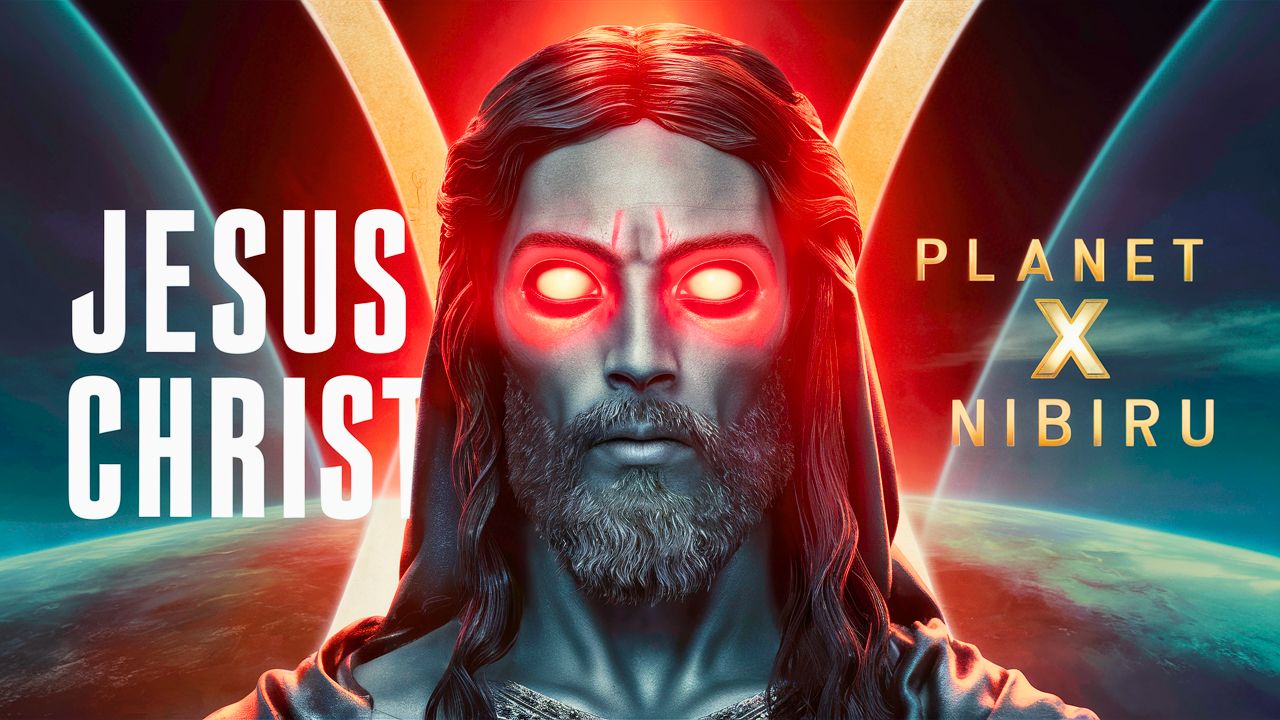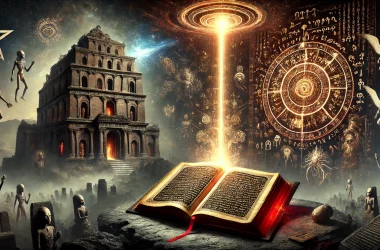Have you ever heard or read the Ethiopian Bible? Those who banned and tried suppressing it have already succeeded if you have not. They have done it so perfectly that most Christians in the world have no what’s in the Ethiopian Bible that the West believes is prohibited to know. If the Ethiopian Bible contains facts and is a Holy Book, then Why The Ethiopian Bible Got Banned?

The Ethiopian Bible
The Ethiopian Bible is one of the most mysterious and controversial books ever. Even the country is shrouded in mysteries that can’t be explained, but that’s a story for another day. Ethiopia is home to one of the oldest civilizations in the world and is the only country in Africa that was not colonized, and because of that, they can trace their lineage all the way back to Ham, one of the sons of Noah. This has even been corroborated with the Jews, but this blog is not about the country itself, but about what the country possesses.
Ethiopia has some of the oldest Bible scrolls that ever existed, even older than the famous KJV Bible. Other than the 66 books that make up the King James Bible, the Ethiopic Bible has 88 books and includes some works that other churches just don’t have. The book has scrolls from the Old Testament, the New Testament, and scrolls that had never been seen before. And what makes this so interesting is that they had these scrolls long before Christianity first came to their society in the 4th century. In other words, Christianity wasn’t a religion given to them like most nations. Christianity was already in Ethiopia.
Since the 4th century, Ethiopia has been a nation of Christianity. Egyptian traveler, monk, and historian Cosmas Indicus wrote that Ethiopia was a Christian country when he visited there in the middle of the 6th century. He saw how the rulers opened their borders to a lot of Christian refugees who fled to Ethiopia as they ran away from persecution from kingdoms and empires that were against Christianity.

Certain Ethiopian tribes have been worshiping the Christian God for over 3,500 years. In such, the oldest organized Christian body in the world is not the Catholic ministry, as many would have you believe, but the Ethiopian Orthodox Church, which is locally known as, “Tewahedo” in Ethiopia.

The country also has one of the earliest illustrated Christian books ever found, which is a part of the gospels written in Ge’ez, an old Ethiopian language, and was found in 2010 in a monastery on top of a mountain in Ethiopia.
According to the Kebra Nagast, which is an Ethiopian’s holy book, in the 10th century BC, an Ethiopian ruler and the famous biblical Queen of Sheba went to Jerusalem to ask the famous King Solomon for advice. It’s even recorded in the accepted Bible canon, but what the Bible didn’t tell us is that the two rulers had a son together named Menelik. Queen Sheba took the boy back to Ethiopia and made him the first emperor.
In 2012, experts looked at the genetic makeup of many Ethiopians and found some evidence to support Sheba’s journey to Jerusalem and birth there. In such, it is believed that Egyptian, Israeli, or Syrian people may have mixed with the Ethiopian natives around 3,000 years ago during the time when the queen is said to have ruled the kingdom of Sheba, corroborating the story even further.
Despite having all these credentials and authenticity, the Ethiopian Bible is still discarded and not taken as part of the canon of the holy books. In fact, most people, including believers of the same faith, have never heard of the Ethiopian Bible. That’s to show you the extent of what was done to discredit and hide the Ethiopian Bible. This begs the question, why?
Why did they Ban The Ethiopian Bible?
Well, to understand that, let’s take a little history lesson. The Bible as we know it today wasn’t actually how the Bible was in the past. There were many versions of different parts of the Bible, as well as many different interpretations and ideas of what the Bible was thought to be saying. As we all know, the Bible texts were originally written in Hebrew before being translated to other languages.
The first translation was done by a man known as St. Jerome from Hebrew to Latin. He was responsible for putting together what is known as ,”The Vulgate” around the year 400, and the Vulgate still remains the principal Latin version or the translation of the Bible. It had 27 books called the New Testament and 39 books called the Old Testament. At that time, it was called the Hebrew Bible.
You see, in the first century, many books were written about Jesus’ life and teachings. However, many of them were not true. These were like fanfiction novels of the account of Jesus’s life. The problem was that when these books were written and released to the public, the public ended up believing those fanfiction books were actually real.
There was no internet to quickly fact check these books, and as we know, fake news travels faster than real news, so you can only imagine the scores of fake books that were in society and the damage it did. This became a worry for leaders in the early Christian Church. They met at the Council of Nicaea in 325 AD and the First Council of Constantinople in 381 AD to choose which books would be added to the New Testament.
They decided that a book was scripture if it was written by one of Jesus’s followers or someone who saw him teach. The book also had to have been written in the first century and make sense with the rest of the Bible.
There have been many changes to what we now call The Holy Bible, but the most important change may have happened during the reign of King James I. Despite the Vulgate existing for about 500 years, there were still numerous versions and accounts of the Bible, so much that it bothered the reigning monarch at that time.
He was worried about the different Bible versions that were popular in the 1600s. The king wanted a version of the Bible that settled religious differences as well as one that reinforced his power. Several priests also asked the king to make changes, saying that some of the translations that were going around were wrong.
To solve this pressing issue, the king got 47 experts to look over all the different translations of the Bible that were already out there. They were split into six groups and worked on different parts of the project on their own for 7 years. These men had to follow strict rules so that they wouldn’t show any bias. They also used several different tools to help them make a scientific Bible that stayed true to the original languages.
When the priests and the King looked at the works of these experts and saw that they had similarities in their work despite being far from each other, they approved it, giving glory to God for guiding them to arrive at the same conclusion.
In 1611, the King James Bible was published, and because of advancements made in printing, it became one of the most accessible Bible versions to date. So these edits made in the King James Bible and the original Vulgate translation made by St. Jerome saw to it that some books were not included in the Bible most Christians have today, while the Ethiopian Bible still retains all scripture.
Now that we’ve taken a short course on the Bible’s history, it’s time to answer the major question of why the Ethiopian Bible was rejected. There are a lot of diverse reasons why the Ethiopian Bible isn’t accepted, but the major reason is because the Ethiopian Bible includes additional books known as pseudepigraphs. Pseudepigrapha are falsely attributed works, texts whose claimed author is not the true author, or a work whose real author attributed it to a figure of the past, like fanfiction.
Pseudepigrapha are considered non-canonical by most other Christian traditions. The books that were removed or rejected were ones that scribes and theologians of the time already knew were not divinely inspired. Many people before and after Jesus wrote these books with evil intentions, and I understand their reasons for removal.
Take, for example, if someone today released a book and said Kobe Bryant isn’t a great athlete, the book would be a great failure, and the author would receive lots of backlash because we know that is false.
But give that book 500 years, and when someone in that timeline sees that book, people in that era could start to think that Kobe Bryant did suck. So, to prevent such lies from spreading into the future, we root them out now.
Now, even the Ethiopian Bible has two canons: the broader and narrower canon. But before we go into it, first let me define what a canon is?
A canon is a generally accepted law, rule, principle, or criterion by which something is judged. So with that in mind, it’s canon for a phone to have one screen, a country one president, this page more visitors. The broader and famous canon has 81 books. In this popular version, we have Enoch, the Jubilees, the three books by Meqabyan, Epistle to Clement, four books of Qiddusan, and a whole lot more. This is the one the blog is mostly about and the one that is a bit famous.
The narrower canon, on the other hand, was overseen by Emperor Haile Selassie. He created the narrower version and publicly proclaimed that this was the official and completed version of the Ethiopian Bible.
The reason for this, unfortunately, I can’t say because it might cause a misunderstanding and a war in the comment but all I will say is look him up on the internet and do your research and see the truth for yourself.
The narrower canon version doesn’t have some scriptures that are found in the broader version. It just has 72 books in it, while the broader canon has everything the narrower canon has and more. The broader canon has not been reprinted since the early 20th century, so already you can see that even within itself there were already controversies, and having two different versions could also contribute to it not being accepted.
The Ethiopian canon is a great way to see how the Bible has changed over time, contrary to popular belief. The Bible isn’t just one book; it’s more of a collection of texts and experiences written over many years, and that’s where the problem kind of lies. Different religious groups, including the verified or accepted ones, have a long history of excluding or including different texts or copies based on different theological, scholarly, and personal grounds.
For example, the Bible we know today was mostly written in the fourth and fifth centuries AD. By that time, Christianity in Ethiopia had already begun to differ from Christianity in Europe and the surrounding area of the Mediterranean, and to date, the difference keeps getting wider.
The Ethiopian Bible has a lot of similarities with the Catholic and Orthodox Bibles, although it does have a few extra Old Testament books. These were probably written in the last few hundred years BC, which is late in the time of the Old Testament books but before the New Testament began. Additional books were added to the end of the New Testament after the rest of it was written. These books, especially, talk about the history and structure of the Ethiopian Church. Another reason for the Ethiopian Bible being rejected could be because of the language it is written in.
The Ethiopian Bible was written in Ge’ez, making it difficult for non-speakers to access, plus the lack of translations and unique practices of the Ethiopian Bible have contributed to its relative obscurity outside of Ethiopia.
The third reason is more controversial and is because of politics. Power and politics was what the Roman Emperor cared about during the early days of Christianity, not spiritual growth, so any scrolls that didn’t fit with their preferred story were left out.
In fact, the bishop of Rome told the priests to destroy the scrolls that weren’t in the Bible, but the priests were smart and hid many of them in vats that were found near the Dead Sea in the 1940s, which would explain the differences between both Bibles, as one version tended to have a quote-unquote “complete” version of the Bible and the other version have what man deemed to be alright.
But in recent years, people have become more interested in the Ethiopian Bible, trying to find out what makes it special and the truth it holds. The Ethiopian churches have also worked to make it easier for more people to read by translating it into more languages and doing academic studies on it. I think it is amazing that this Bible survived this long, especially after the country was attacked by Muslims and Italy, and after a fire burned the church of the monastery where the Bible was in the 1930s, and it survived it all, adding to the mystery of this book.
References
- Shumet, Asfa. “Ethiopian Orthodox Tewahedo Church”. Britannica.
- “Ethiopia: Land of Origins and Legends”. UNESCO.
Shop amazing Anunnaki Merchandise at our store, Follow us on Facebook, Instagram, And For More Interesting Content Also Subscribe To Our Youtube Channel.


